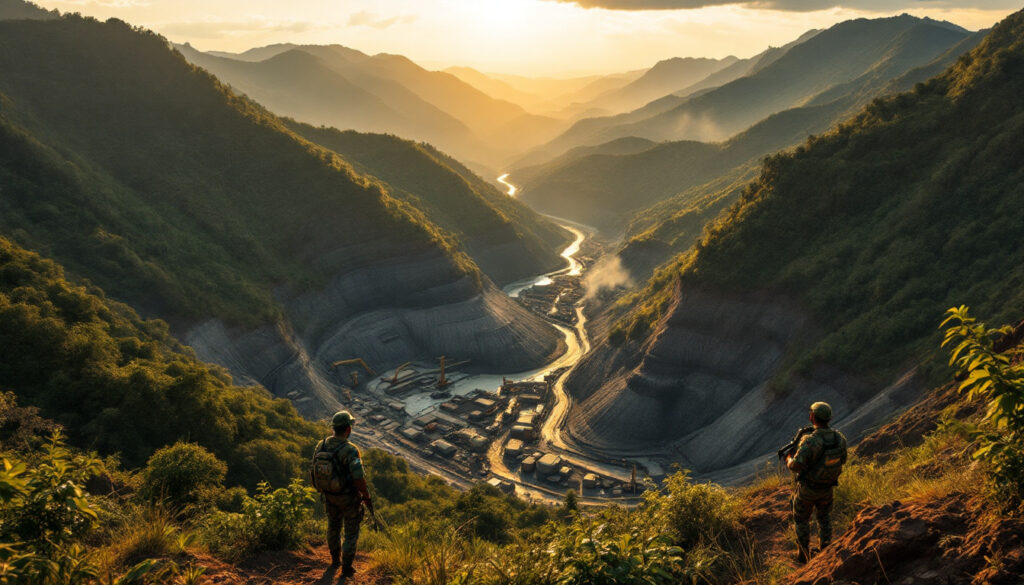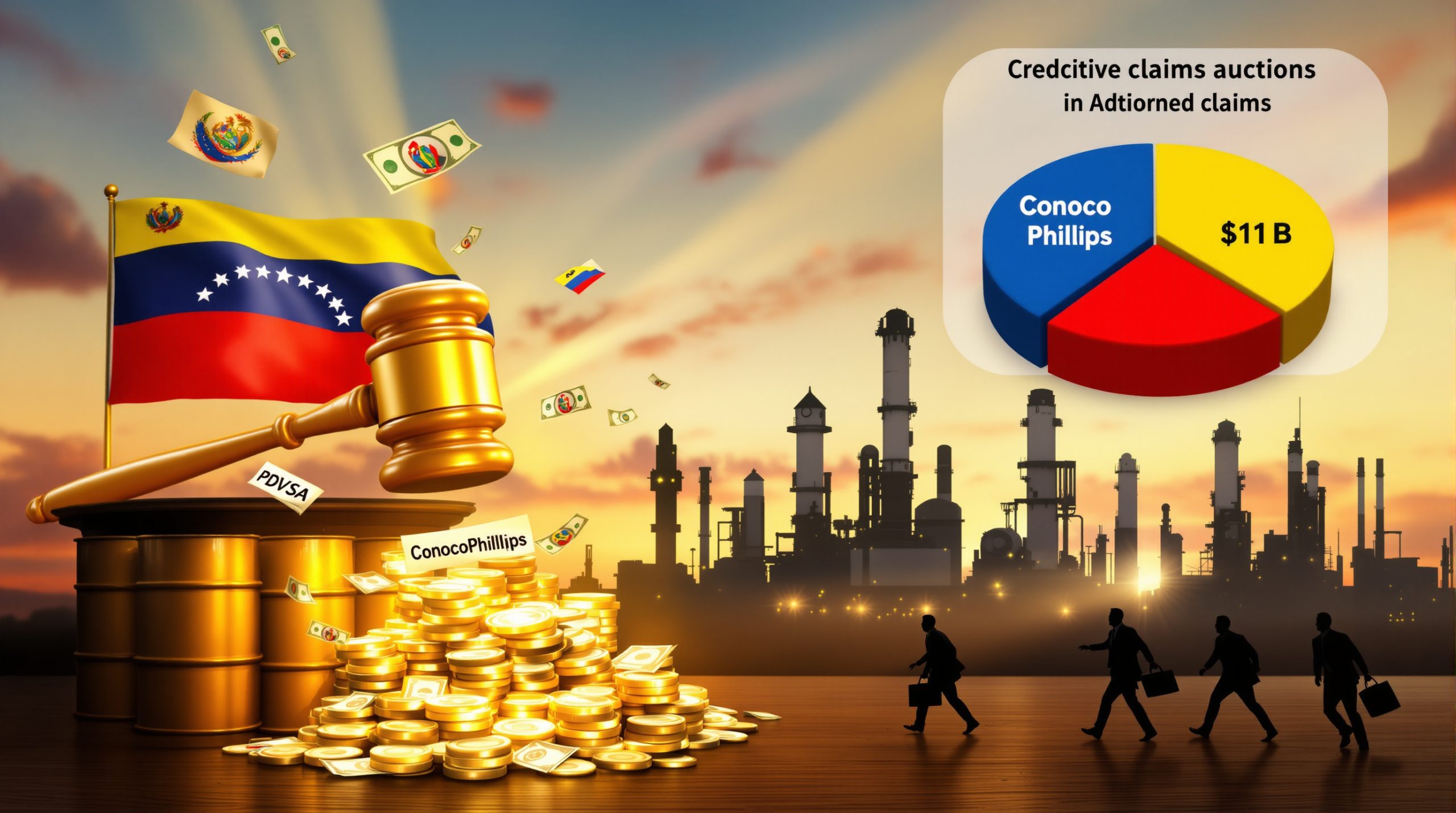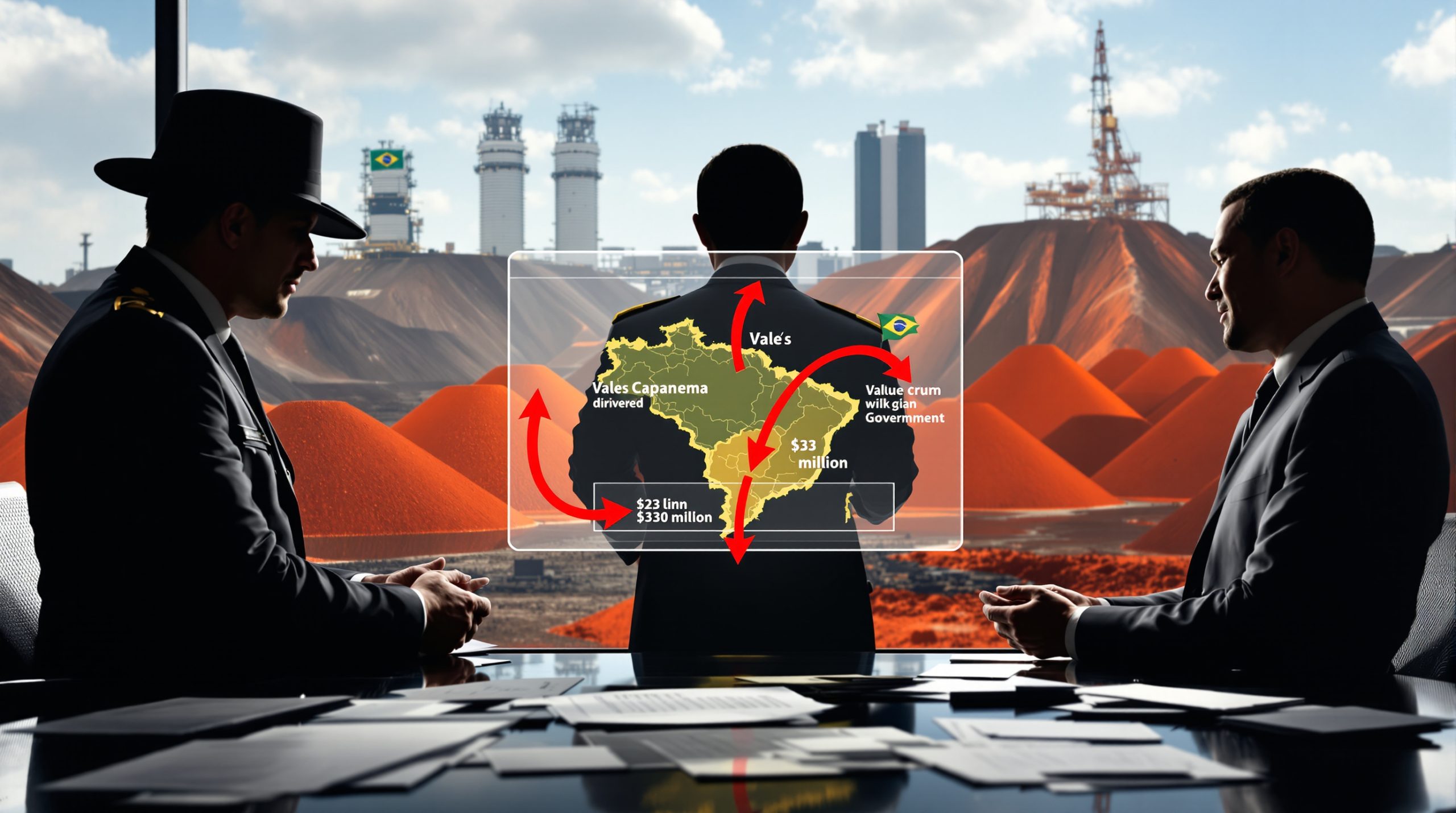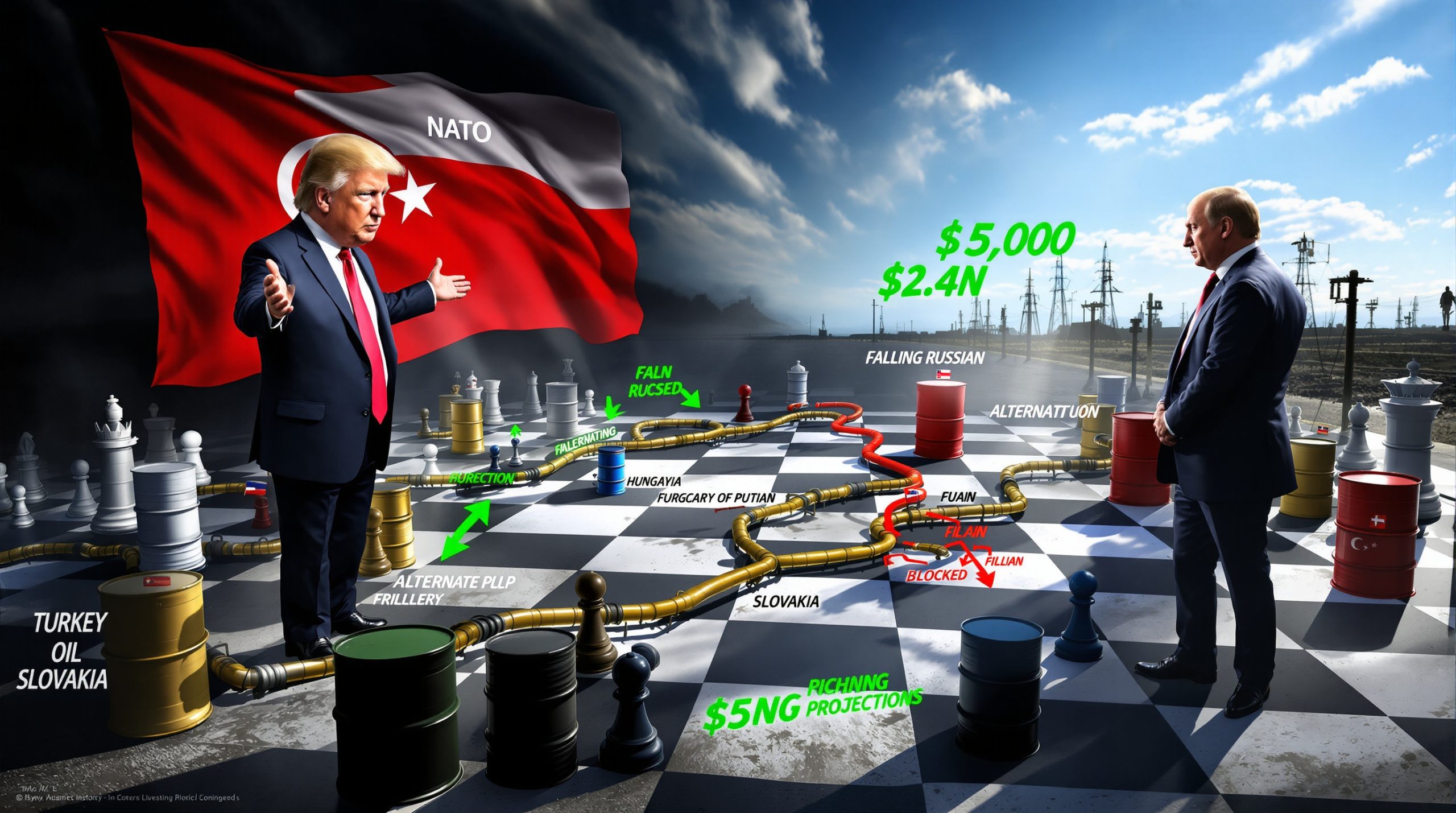What is the M23 Rebel Conflict in Eastern Congo?
The M23 rebel conflict represents one of Africa's most complex and destabilizing insurgencies, with profound implications for regional security and global mineral supply chains. Emerging in 2012 as a breakaway faction of the National Congress for the Defence of the People (CNDP), the March 23 Movement (M23) has steadily expanded its territorial control across eastern Democratic Republic of Congo (DRC). By April 2025, M23 forces had secured approximately 40% of North Kivu and 25% of South Kivu provinces, establishing parallel governance structures that directly challenge Kinshasa's authority.
Rwanda's alleged support for M23 has significantly complicated the conflict dynamics. United Nations experts have consistently documented "direct military support" from Rwanda to M23 rebels between 2023 and 2025, despite Rwanda's continued denials. This cross-border dimension has transformed a local insurgency into a proxy conflict with wider geopolitical implications for the Great Lakes region.
Background of the M23 Rebellion
The rebellion's roots trace back to unresolved ethnic tensions and failed peace agreements following the devastating Congo Wars (1996-2003). Former CNDP fighters integrated into the Congolese army mutinied in 2012, claiming the government had failed to implement previous peace agreements. They named themselves after the March 23, 2009 peace accord that had promised integration and recognition.
After a period of relative dormancy from 2013-2021, M23 resurged with unprecedented strength in late 2021, capturing strategic towns and mineral-rich territories throughout eastern Congo. Their rapid territorial gains suggest sophisticated military capabilities beyond what a typical rebel group might possess, lending credence to allegations of foreign backing.
M23's strategy includes establishing administrative structures in captured territories, effectively creating a "state within a state" in eastern DRC. They've appointed governors, collected taxes, and begun regulating business activities—including the critical mining sector that forms the backbone of the regional economy.
Strategic Importance of Eastern Congo's Mineral Resources
Eastern DRC hosts some of Africa's richest mineral deposits, with the region containing approximately 70% of the world's cobalt reserves and substantial gold, tin, tantalum, and tungsten deposits. These resources are increasingly critical for global technology supply chains, particularly for renewable energy and electronic devices. Before the recent rebel advances, eastern Congo produced an estimated 20 tonnes of gold annually through both industrial and artisanal operations.
The Twangiza gold mine, located in South Kivu province, represents just one node in this vast mineral network. Industrial mining operations like Twangiza coexist alongside approximately 200,000 artisanal miners who extract gold from smaller deposits throughout the region, creating a complex economic ecosystem vulnerable to exploitation.
Rebel control of these mineral resources follows a well-established pattern in Congo's troubled history. During the Second Congo War (1998-2003), various armed groups financed their operations through mineral exploitation, leading to the term "conflict minerals." The current M23 administration appears to be following this playbook, targeting mining operations for revenue generation through taxation and regulatory control.
How Has the Twangiza Mining Situation Developed?
The suspension of operations at the Twangiza gold mine represents a significant escalation in M23's approach to resource governance in captured territories. The mine, a cornerstone of South Kivu's formal economy, had maintained operations despite previous territorial changes in the region.
Profile of Twangiza Mining Operations
Twangiza gold mine stands as one of eastern Congo's most significant industrial mining operations. Located approximately 45 kilometers southwest of Bukavu in South Kivu province, the mine began commercial production in 2012 and rapidly developed into a cornerstone of the region's economy.
The ownership structure reflects the international nature of Congo's mining sector: Shomka Resources controls 65.5% of the operation, while Chinese-based Baiyin International Investments holds the remaining 34.5%. This international investment had previously insulated the operation from local political turbulence, with mining continuing despite earlier regional conflicts.
Prior to the suspension, Twangiza produced approximately 5.8 tonnes of gold annually, representing nearly 30% of South Kivu's formal gold production. The operation directly employed around 1,200 local workers and supported an estimated 15,000 indirect jobs through supply chains and service industries, making it a crucial economic lifeline for communities already destabilized by conflict.
The mine's operational infrastructure includes an open-pit mining area, crushing facilities, leaching tanks, and a processing plant capable of handling up to 1.7 million tonnes of ore annually. This substantial investment in fixed assets now sits idle under rebel administration.
Timeline of the Current Dispute
The current crisis began with M23's strategic push into South Kivu province in early 2025, expanding beyond their traditional North Kivu strongholds. By March 2025, rebel forces had secured key transport routes and population centers in the province, culminating in the installation of Manu Birato as the M23-appointed governor of South Kivu—a direct challenge to nationally recognized provincial authorities.
The specific dispute with Twangiza Mining reached its breaking point on May 8, 2025, when Governor Birato issued a formal directive ordering the "immediate suspension" of mining operations, citing alleged tax avoidance and regulatory non-compliance. Following the directive, Twangiza Mining's General Director Chao Xianfeng issued a company-wide notification confirming the suspension of operations and initiating emergency protocols to secure equipment and facilities.
This sequence represents a significant test case for how M23 intends to manage the region's natural resources. Rather than allowing continued operations under informal arrangements—a common practice in conflict zones—the rebel administration has demonstrated its intent to formalize control through bureaucratic mechanisms that mirror legitimate state functions.
What Are the Tax Allegations Against Twangiza Mining?
The tax dispute case between M23 authorities and Twangiza Mining exemplifies the complex governance challenges facing companies operating in conflict-affected areas. The allegations center not just on technical tax compliance but on fundamental questions of legitimacy and governance.
M23 Administration's Claims
Governor Birato has been explicit in his accusations, stating publicly that Twangiza Mining has consistently avoided paying required taxes, with money allegedly flowing "into private coffers" rather than supporting local development. This language suggests M23 is attempting to position itself as a defender of local interests against extractive foreign companies—a narrative designed to build local legitimacy.
According to the Congo Research Group, M23 has implemented a parallel tax regime in captured territories, imposing a 15% "territorial tax" on mining revenues—significantly higher than the standard royalty rates under DRC's national mining code. This represents a direct revenue challenge to Kinshasa, which has lost approximately $45 million in mining-related tax revenue from rebel-controlled territories since January 2025.
The rebel administration has further claimed that mining companies operating under their jurisdiction must comply with a "new regulatory framework" being developed specifically for rebel-held areas. This framework reportedly includes environmental provisions, local content requirements, and community development obligations that differ from national regulations.
A key point of contention remains whether operations were formally ordered closed by rebel authorities or voluntarily suspended by company management. While official communications refer to a "directive" from Governor Birato, company statements have characterized the suspension as a "prudent operational decision in response to the changing security environment," potentially seeking to avoid the appearance of recognizing rebel authority.
Company's Response and Position
Twangiza Mining has maintained a cautious public position, acknowledging the operational suspension without directly engaging with the specific tax allegations. The company's May 8 statement noted only that "equipment has been placed in standby mode" and that "management is assessing the situation," avoiding language that might imply recognition of M23's legitimacy.
This standby mode involves significant technical measures: securing heavy machinery against deterioration, pitting ore processing systems to prevent damage during inactivity, and maintaining a skeletal security and maintenance staff at the site. Mining experts estimate that maintaining operations in this suspended state costs approximately $200,000 monthly while generating zero revenue.
The company has also initiated confidential consultations with the legitimate DRC government in Kinshasa regarding the legal and diplomatic implications of the situation. These discussions reportedly include concerns about potential violations of mining license terms, which typically require continuous operations, and the risk of asset seizure if the standoff continues.
For Twangiza's international investors, the suspension creates immediate financial challenges. Market analysts estimate the company will lose approximately $25 million in revenue for each month of suspended operations, with no clear timeline for resolution. Beyond immediate financial impacts, the company faces complex legal questions regarding compliance with international sanctions against rebel groups and potential liability under "conflict minerals" regulations in major markets.
What Are the Broader Implications for Mining in Conflict Zones?
The Twangiza case establishes a concerning precedent for resource extraction in areas of contested governance, with ripple effects likely to extend well beyond eastern Congo.
Impact on International Mining Operations
For international mining companies with operations in politically fragile regions, the Twangiza situation represents a sobering project suspension example in political risk. The swift transition from normal operations to complete suspension demonstrates how quickly assets can be compromised when territorial control shifts.
Risk analysts from Verisk Maplecroft have warned that "investors face legal liability under the Dodd-Frank Act's conflict minerals rule" when operating in rebel-controlled territories, even if they had established their operations under legitimate government authority. This creates a complex compliance environment where companies must navigate both operational challenges and potential legal exposure in their home jurisdictions.
The situation mirrors previous cases in other conflict regions. In Myanmar's jade mines, competing claims between the military government and ethnic armed organizations created similar operational dilemmas for mining companies. In Colombia, FARC rebels previously imposed "revolutionary taxes" on mining operations in areas under their control, though Colombia's peace process eventually provided a negotiated pathway forward that remains absent in the Congo context.
Industry experts predict this case could accelerate the trend toward "jurisdictional de-risking," where mining companies increasingly divest from politically unstable regions despite their mineral potential. A 2024 survey of mining executives found that 68% now consider "governance stability" a primary factor in investment decisions, above even geological potential—a significant shift from historical industry priorities.
Commodity Market Effects
The suspension of Twangiza's operations has already sent ripples through regional gold markets. While the mine's 5.8 tonnes of annual production represents a small fraction of global gold output (approximately 3,000 tonnes annually), it constitutes a significant portion of verifiably sourced gold from Central Africa.
Supply chain experts note that disruptions to formal mining operations often lead to increased artisanal mining activity, particularly in gold sectors where small-scale extraction remains viable. The World Gold Council estimates that approximately 60% of artisanal gold from conflict zones enters international markets through unofficial channels, creating significant challenges for downstream industries attempting to ensure conflict-free supply chains.
For technology and jewelry companies committed to responsible sourcing, the shrinking pool of verifiably conflict-free gold from Central Africa creates significant compliance challenges. Major electronics manufacturers have already announced enhanced due diligence measures for gold sourced from the region, with some implementing temporary pauses on new Congo-sourced materials until clearer traceability can be established.
How Does This Affect Congo's Economic Stability?
The disruption at Twangiza forms part of a wider economic challenge for the DRC, with both immediate fiscal impacts and long-term developmental implications.
National Revenue Implications
The formal mining sector generates approximately 30% of DRC's national revenue, with gold exports alone contributing over $600 million annually to the country's foreign exchange earnings. The M23 territorial gains have already resulted in an estimated $45 million loss in mining-related tax revenue since January 2025, according to DRC Treasury figures.
Beyond direct tax losses, the proliferation of parallel tax systems undermines the government's economic planning capabilities. When companies pay taxes to rebel authorities rather than the national government, it creates fiscal unpredictability that complicates budget forecasting and infrastructure planning essential for development.
The economic impact extends well beyond government balance sheets. Communities dependent on mining employment face immediate hardship when operations suspend. The South Kivu Labor Union estimates that Twangiza's 1,200 direct employees represent household income supporting approximately 7,200 individuals, with an additional 15,000 people dependent on indirect employment through the mine's supply chain.
This economic stress often drives increases in illegal mining activities. When formal mining operations cease, many workers transition to artisanal mining in dangerous, unregulated conditions. These informal operations typically yield lower recovery rates, cause greater environmental damage, and create conditions where child labor and human rights abuses become more prevalent.
Governance Challenges
The emergence of competing tax authorities creates profound governance challenges in eastern Congo. Mining companies now face contradictory demands: the legitimate government in Kinshasa insists companies must continue paying national taxes regardless of local conditions, while rebel authorities threaten operational shutdowns for non-compliance with their parallel tax system.
This governance fragmentation extends beyond taxation into regulatory oversight. Environmental monitoring, safety inspections, and labor standards—already challenging in DRC's mining sector—become virtually impossible to enforce in areas of contested authority. The resulting regulatory vacuum often leads to environmental degradation and hazardous working conditions that persist long after conflicts resolve.
International recognition issues further complicate transactions with rebel authorities. Financial institutions face significant compliance risks when processing payments to entities without recognized legal status, creating additional barriers to normal business operations. Companies seeking to maintain operations while awaiting political resolution often find themselves unable to conduct basic financial transactions needed for payroll and vendor payments.
What Legal and Ethical Questions Does This Raise?
The situation at Twangiza exists at the intersection of international law, corporate ethics, and conflict dynamics, raising fundamental questions about business responsibilities in conflict settings.
International Law Considerations
Companies operating in rebel-controlled territories face a complex legal landscape. The United Nations Security Council Resolution 2688 (2023) imposes sanctions on entities providing material support to M23, potentially including tax payments that could be interpreted as financing rebel activities. Yet refusing to pay rebel-imposed taxes risks asset seizure and safety threats to local employees.
The legal status of mining licenses becomes particularly ambiguous under rebel administration. While international law generally holds that legitimate government contracts remain valid despite territorial changes, practical enforcement becomes nearly impossible when physical assets fall under rebel control. Companies that abandon operations may risk losing their concessions under "continuous operations" requirements in mining codes, yet continuing operations might violate sanctions regimes.
A precedent-setting 2017 Canadian Supreme Court ruling determined that corporate payments to rebel groups could constitute "terrorism financing" even when made under duress to protect assets or employees. This ruling has significant implications for mining companies with North American listings or financing, potentially creating personal liability for corporate directors who authorize payments to rebel administrations.
Corporate Social Responsibility Dimensions
Beyond legal compliance, companies face profound ethical dilemmas when operating amid conflict. Human Rights Watch has explicitly stated that "paying taxes to rebels perpetuates conflict" by providing financial resources to armed groups responsible for human rights abuses. Yet immediate withdrawal can devastate local communities dependent on mining employment, potentially causing more immediate human suffering.
The situation highlights the limitations of existing corporate social responsibility frameworks in conflict settings. While the OECD Due Diligence Guidance provides principles for responsible mineral sourcing, it offers limited practical guidance for companies whose existing operations suddenly fall under rebel control. The guidance presumes companies can choose whether to enter high-risk areas, but offers little direction for those already operating when conflict erupts.
Transparency becomes particularly challenging in these environments. Public reporting on payments to rebel groups—even when made under duress—could trigger sanctions violations, yet failure to disclose such payments violates transparency principles that underpin responsible business conduct standards. This creates a fundamental tension between transparency and legal compliance that existing frameworks struggle to resolve.
FAQs About Mining Operations in Rebel-Controlled Territories
Legal and Operational Questions
What legal status do mining licenses have under rebel administration?
Mining licenses issued by internationally recognized governments remain legally valid under international law principles, even when physical assets fall under rebel control. However, practical enforcement becomes impossible without state backing. Companies typically maintain their legal rights to concessions but lose operational control until territorial sovereignty is restored or negotiated settlements reached.
How do international sanctions affect mining operations in rebel areas?
Sanctions regimes, including UN Security Council Resolution 2688 and various national implementations, generally prohibit financial transactions that benefit sanctioned groups. This creates a catch-22 for companies: paying rebel-imposed taxes may violate sanctions, while refusing may result in asset seizure. Some companies secure specific licenses or exemptions from their home governments to maintain critical operations, though these rarely provide comprehensive protection.
What options do companies have when caught between competing authorities?
Companies typically pursue four strategies: (1) temporary suspension of operations while maintaining assets in "care and maintenance" mode; (2) negotiated arrangements with both legitimate and rebel authorities, often through third-party intermediaries; (3) complete withdrawal with asset write-downs; or (4) continued operations with enhanced due diligence and humanitarian justifications. Each carries distinct legal, financial, and ethical implications that must be evaluated against specific circumstances.
How are employees and local communities affected by operational suspensions?
The impacts are often severe and immediate. In Twangiza's case, the suspension directly affects 1,200 employees and approximately 15,000 indirect jobs. Beyond lost wages, communities lose access to company-provided services like healthcare and education that often fill gaps in state provision. Additionally, security often deteriorates as former employees may turn to informal or illegal activities for survival, creating cycles of increased instability.
Investment and Risk Considerations
What risk mitigation strategies exist for mining in conflict-affected regions?
Political risk insurance provides some financial protection, though policies typically exclude payments in cases of recognized rebellion or war. Lloyd's of London reported a 40% increase in political risk insurance claims related to DRC in 2024, reflecting the deteriorating security situation. Beyond insurance, companies increasingly employ distributed operational models with multiple smaller sites rather than single large operations, reducing vulnerability to localized disruptions.
**How
Ready to Spot the Next Major Mineral Discovery?
Discovery Alert's proprietary Discovery IQ model delivers instant notifications on significant ASX mineral discoveries, turning complex data into actionable investment insights. Understand why major discoveries can lead to substantial returns by exploring Discovery Alert's dedicated discoveries page and begin your 30-day free trial today to position yourself ahead of the market.




